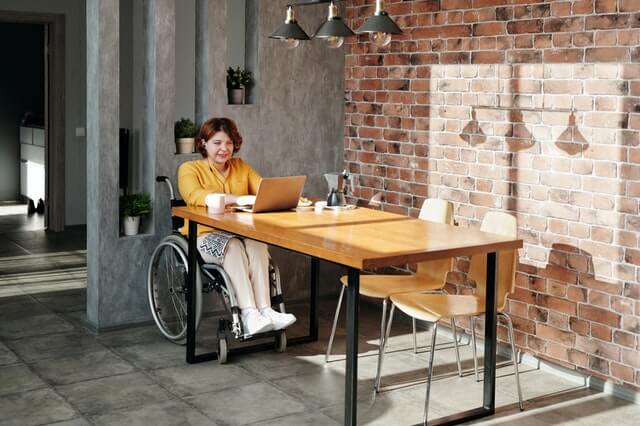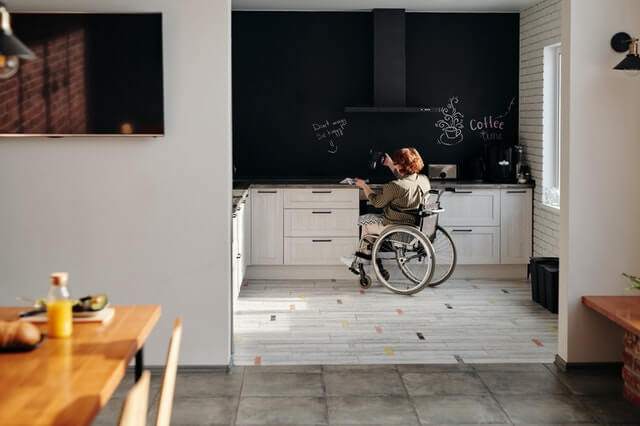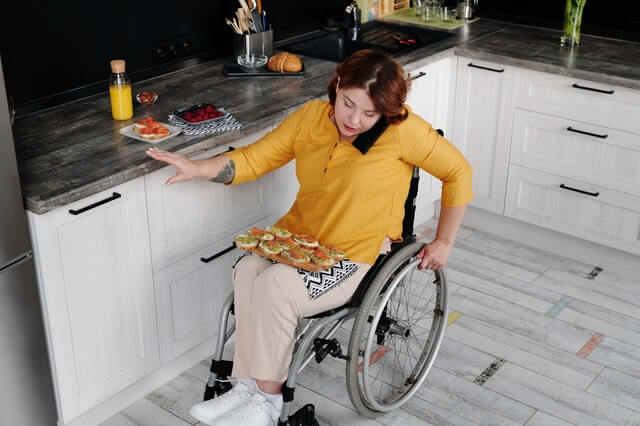A landlord’s job is to provide a home to everyone who needs it, regardless of race, gender, age, etc. As long as a tenant qualifies to rent a home, the landlord may allow them to rent. Persons with disabilities can rent properties, too. However, it is difficult for them to find a rental that is accessible and can help them move around without struggle.
If a landlord wants to cater to differently-abled tenants, he can, but he has to make some revisions to the property. By changing the property to become handicap-friendly, the rental is adequate to accommodate tenants with limited mobility. These tenants use wheelchairs, walkers, or scooters that doorways and countertops can pose as a hindrance. Handicap rentals are rare, and converting a property to become one can help tenants with special needs.

WHAT TO DO?
• Wide doorways
Some disabilities require the use of wheelchairs. The landlord should consider that wheelchairs take up space because of their width. Therefore, the property’s doorways should accommodate them. The entrance to every room must be wide enough for wheelchairs to enter without difficulty.
• Stairs are a no-no
As much as possible, the landlords must avoid having stairs on the property. Stairs will make it dangerous for people who are unable to walk without assistance. However, if unavoidable, the landlord can install a ramp for them. He should make sure that the ramp is safe enough and is angled correctly to avoid accidents. Landlords can check building codes to know the right way of putting in ramps.

• Accessible sinks
One of the struggles of people in wheelchairs is using sinks. Sinks with cupboards under them block the wheelchairs, making it an effort for some to wash their hands. Having wall-mounted or pedestal sinks can help solve this problem.
• Flat thresholds
Aside from having wide doorways, landlords must also consider the pathways. Any elevation can become an obstruction or hazard for persons with disabilities. Landlords should make sure that the thresholds are flat.
• Lowered countertops
The height of the kitchen and bathroom countertops has a standard measurement, around 36 inches. Imagine a disabled person in a wheelchair or scooter trying to utilize the space. It is not easy, am I right? The solution would be to lower the countertops’ height so the tenants can reach them. A few inches can help them a lot in performing their daily tasks.

• Toilet assistance
Not all tenants with special needs have someone to take care of them. Some of them go on with their daily activities independently. In preparation for those tenants, landlords can put in raised toilets inside the bathrooms. They can also have hand bars installed so the tenants can position themselves if no one can assist them.
• Convenient showering
As I have mentioned, some differently-abled tenants are independently living. Another thing to offer them is a convenient way of taking a bath. Some tenants cannot take a bath standing up. Landlords can provide them with a tub designed to assist them. It can have a side door they can open to reveal a chair inside.
• Alarms for help
Persons with disabilities are prone to accidents, and that is one thing landlords should anticipate. It is also a concern if the tenant lives alone. Advise the landlord to provide a personal alarm system for the tenants which they can carry around. There are alarm systems that will emit a loud sound that will alert anyone near them. There are also alarms connected to medical services call centers.
A landlord can also enjoy some benefits because the more inclusive his rental property is, the more potential tenants he can attract. The best thing you should do is sign up for Padleads. Not only can you post the property listing, but you can also syndicate it to other websites that people frequent. Doing that will reach more people who need to see that there are properties for everyone.
Providing homes should not be limited to those people who are able and independent. Landlords should consider renting out to those with disabilities. They need a home without the struggles. It is not only about giving them an accessible home but also giving them a safe one.